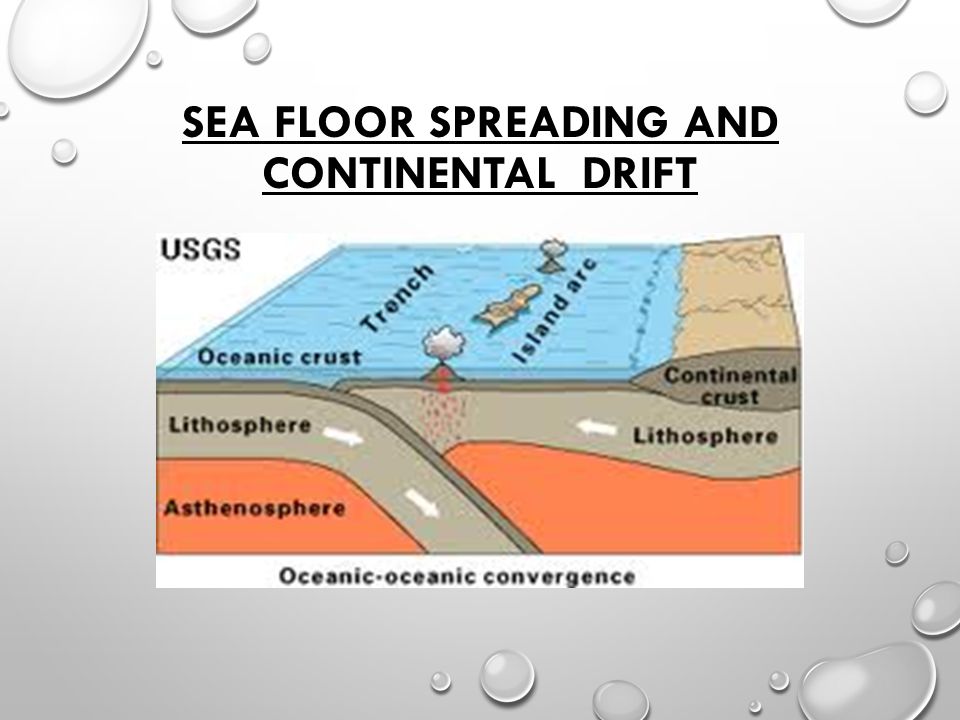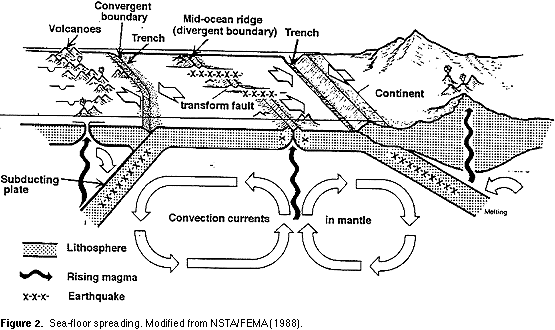What they discovered was that the magnetism of the ocean floor around mid ocean ridges was divided into matching stripes on either side of the ridge.
The process that causes the drifting of the ocean floor.
Plates that are not subducting are driven by gravity sliding off the elevated mid ocean ridges a process called ridge push.
Basalt the once molten rock that makes up most new oceanic crust is a fairly magnetic substance and scientists began using magnetometers to measure the magnetism of the ocean floor in the 1950s.
These age data also allow the rate of seafloor spreading to be determined and they show that rates vary from about 0 1 cm 0 04 inch per year to 17 cm 6 7 inches per year.
The ocean floor sinks beneath a deep ocean trench and back into the mantle in a process known as subduction the formation of volcanoes and mountain ranges can be explained by the theory of.
The process by which new ocean floor is created and causes the continents to drift.
At a spreading center basaltic magma rises up the fractures and cools on the ocean floor to form new seabed.
Many ocean floor features are a result of the interactions that occur at the edges of these plates.
The shifting plates may collide converge move away diverge or slide past transform each other.
Ocean floor is created by the process of subduction.
Seafloor spreading brings them together.
The magnetism of mid ocean ridges helped scientists first identify the process of seafloor spreading in the early 20th century.
As the seafloor grows wider the continents on opposite sides of the ridge move away from each other.
In the process of seafloor spreading molten rock rises from within the earth and adds new seafloor oceanic crust to the edges of the old.
Ocean basins get narrower as a result of seafloor spreading.
Samples collected from the ocean floor show that the age of oceanic crust increases with distance from the spreading centre important evidence in favour of this process.
As plates converge one plate may move under the other causing earthquakes forming volcanoes or creating deep ocean trenches.
As upwelling of magma continues the plates continue to diverge a process known as seafloor spreading.
Subduction causes continents to move apart.
Hydrothermal vents are common at spreading centers.
Mid ocean ridges where ocean crust is created trenches where the ocean plates are subducted and large fractures in the seafloor called transform faults where the plates slip by each other.
Tuzo wilson predicted three types of boundaries between plates.
The scientists work inspired a tremendous surge in scientific progress on the topic of plate tectonics.
Convection cells in the are responsible for the movement of tectonics plates.










